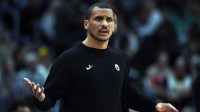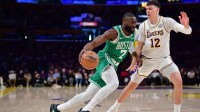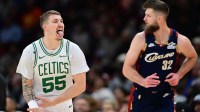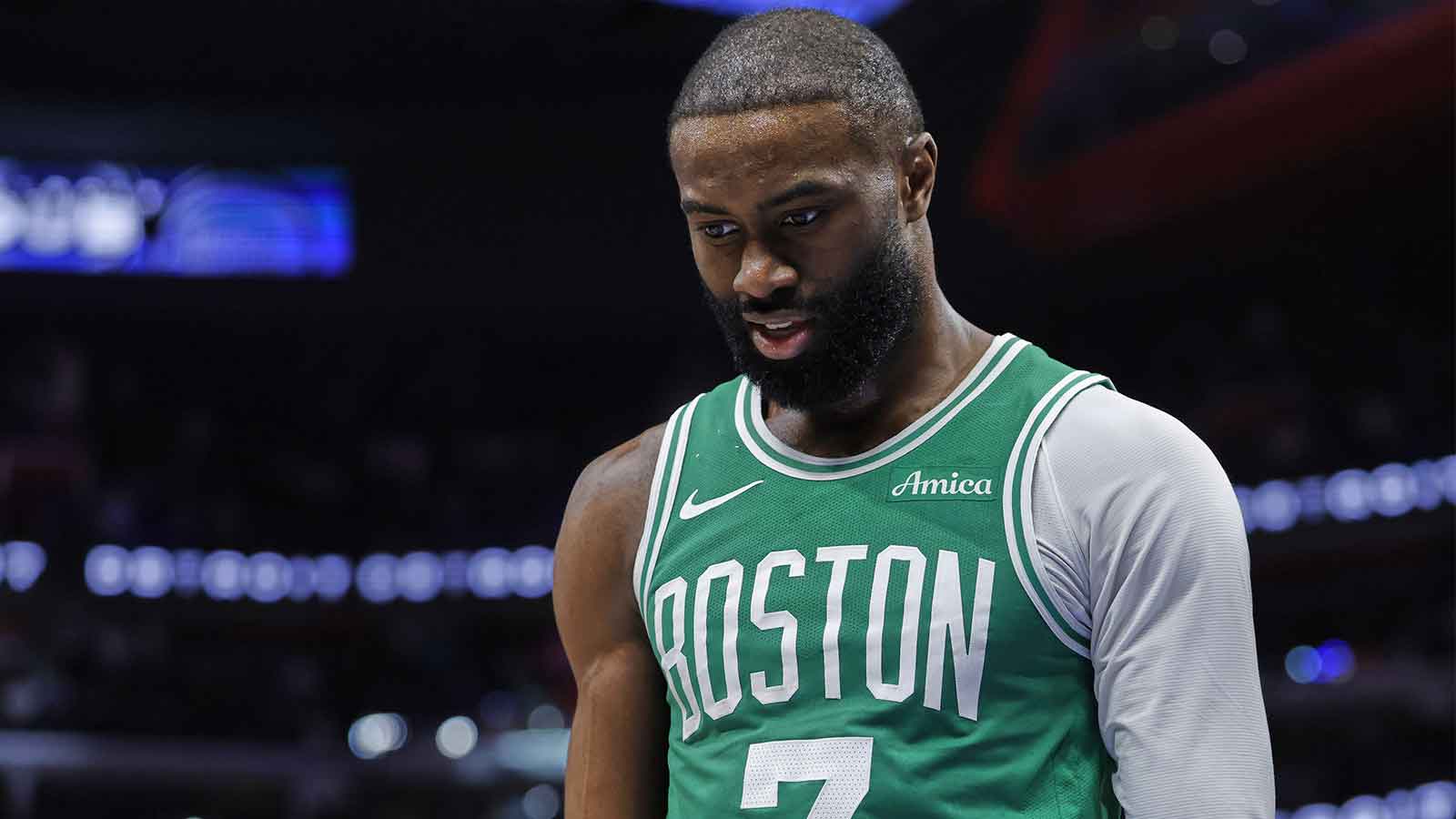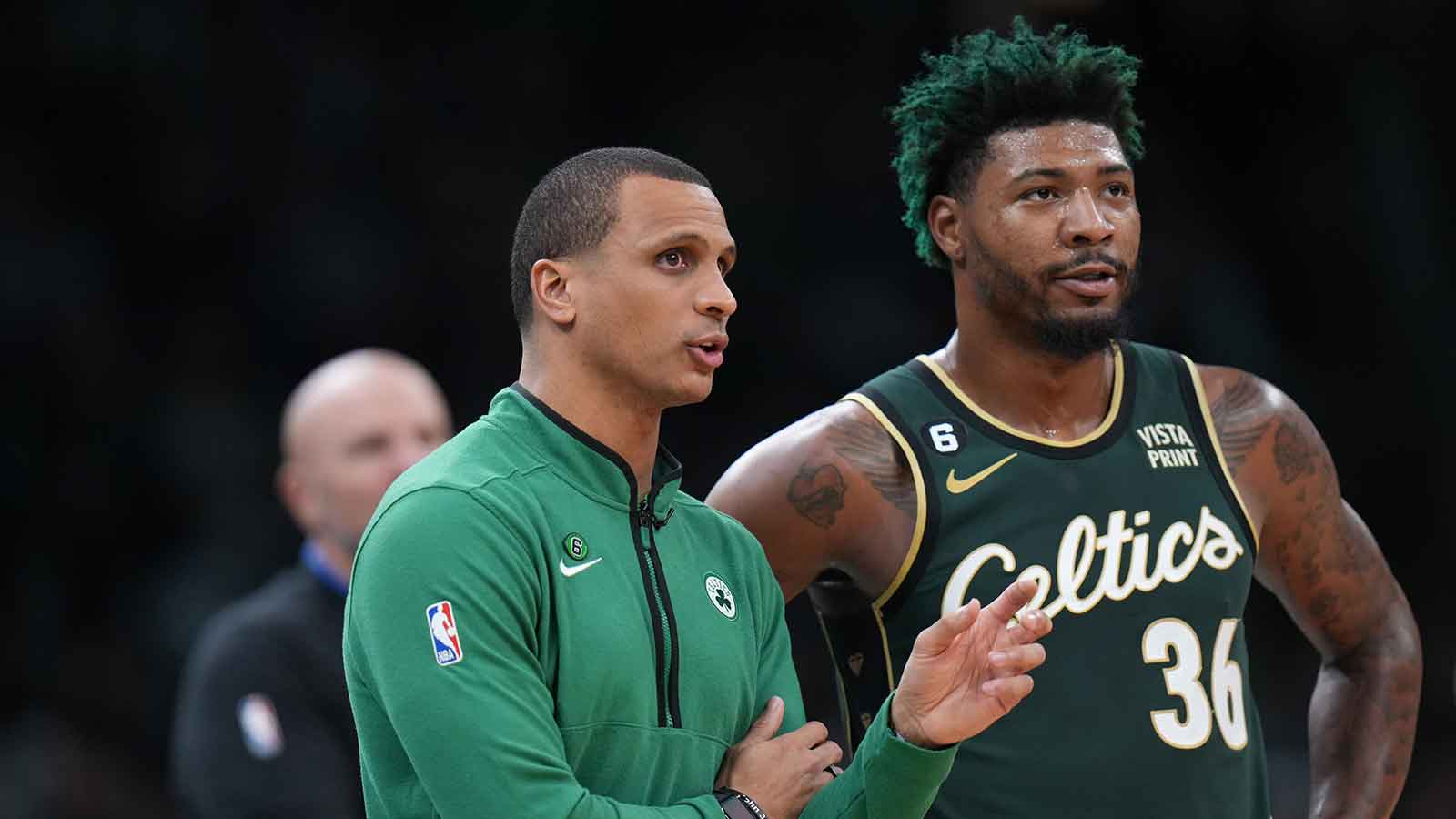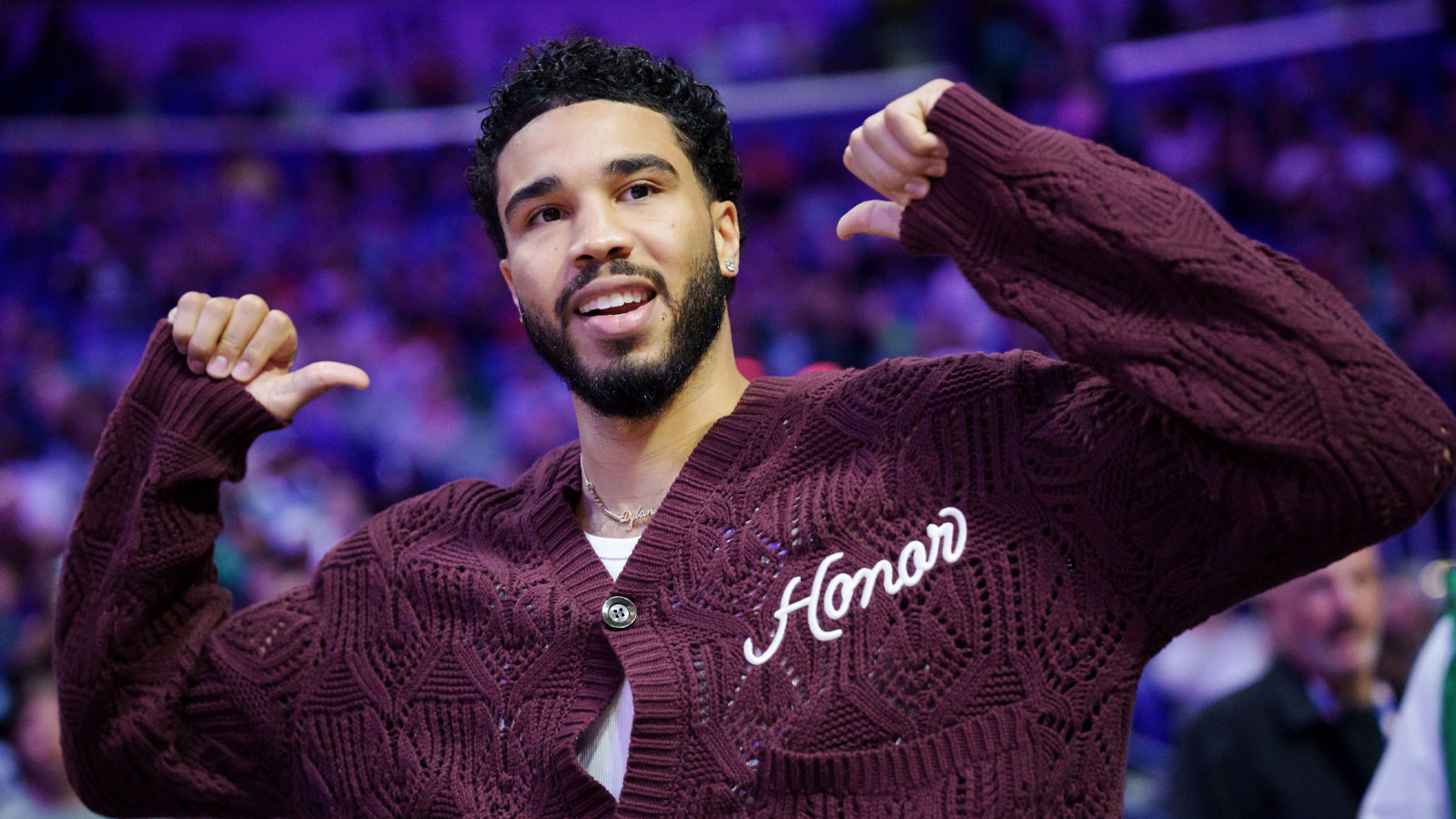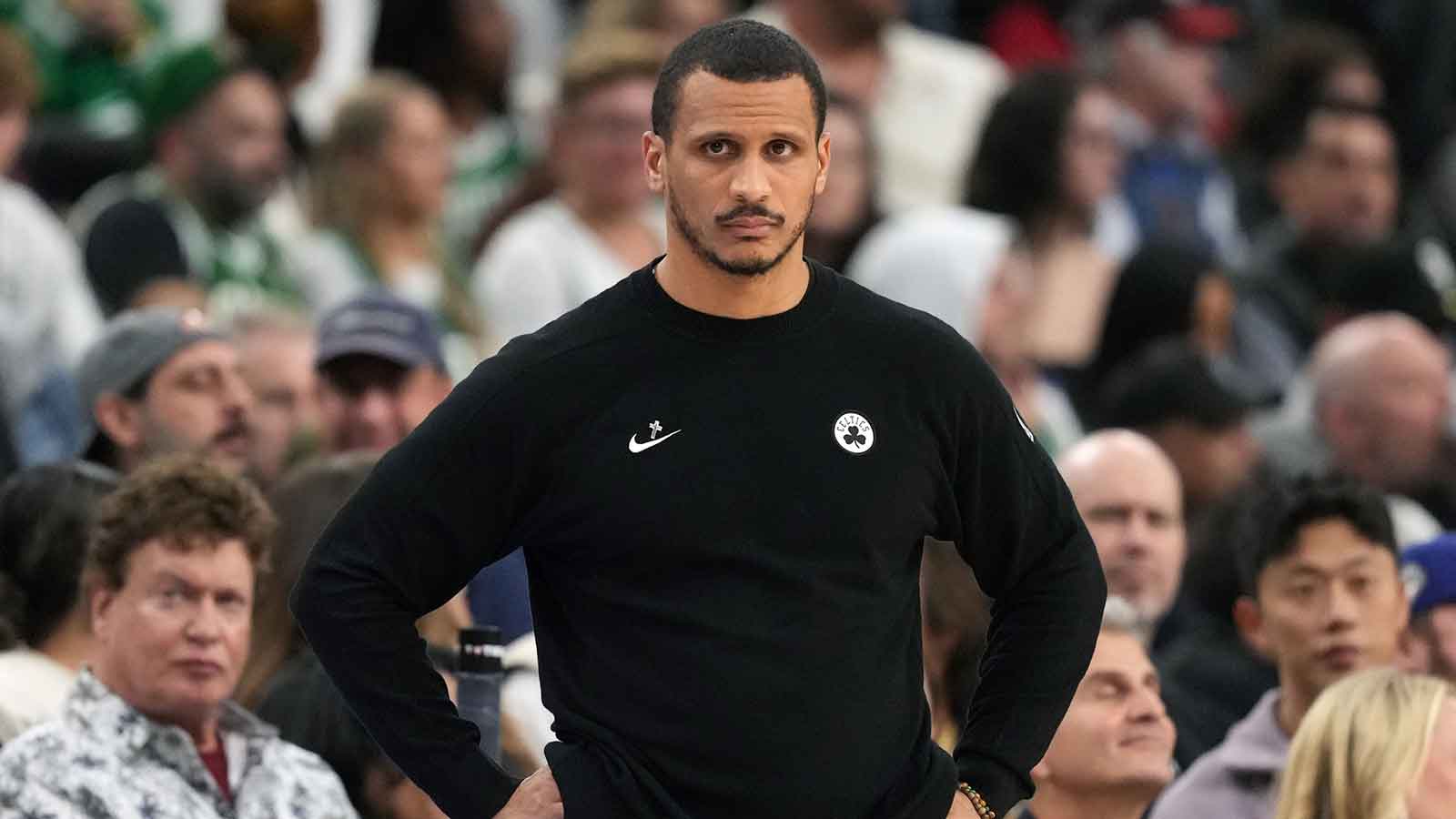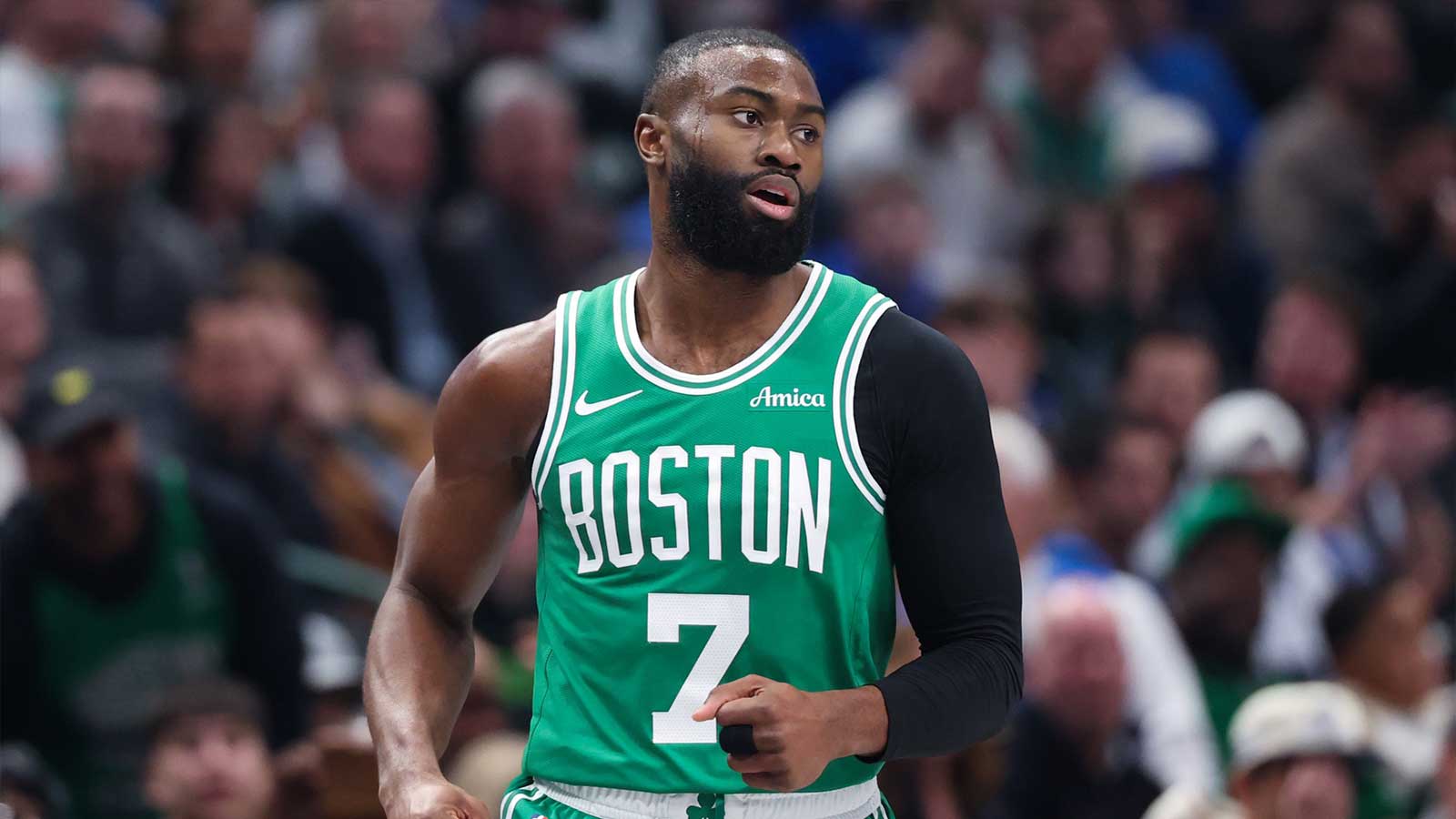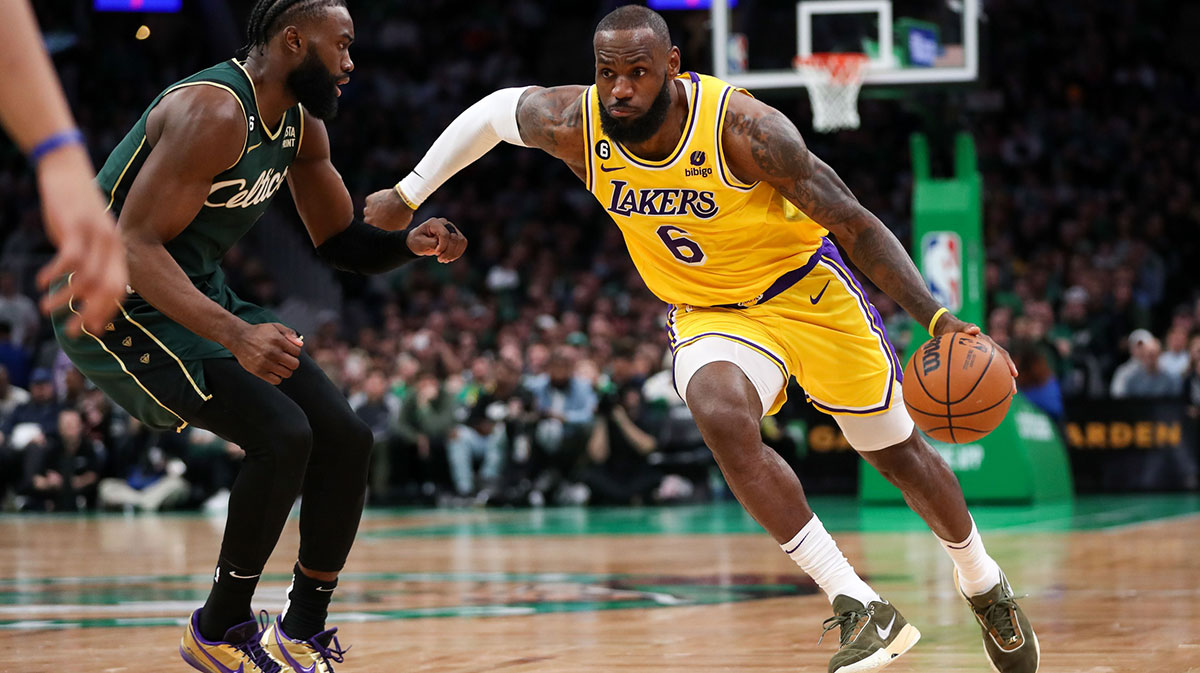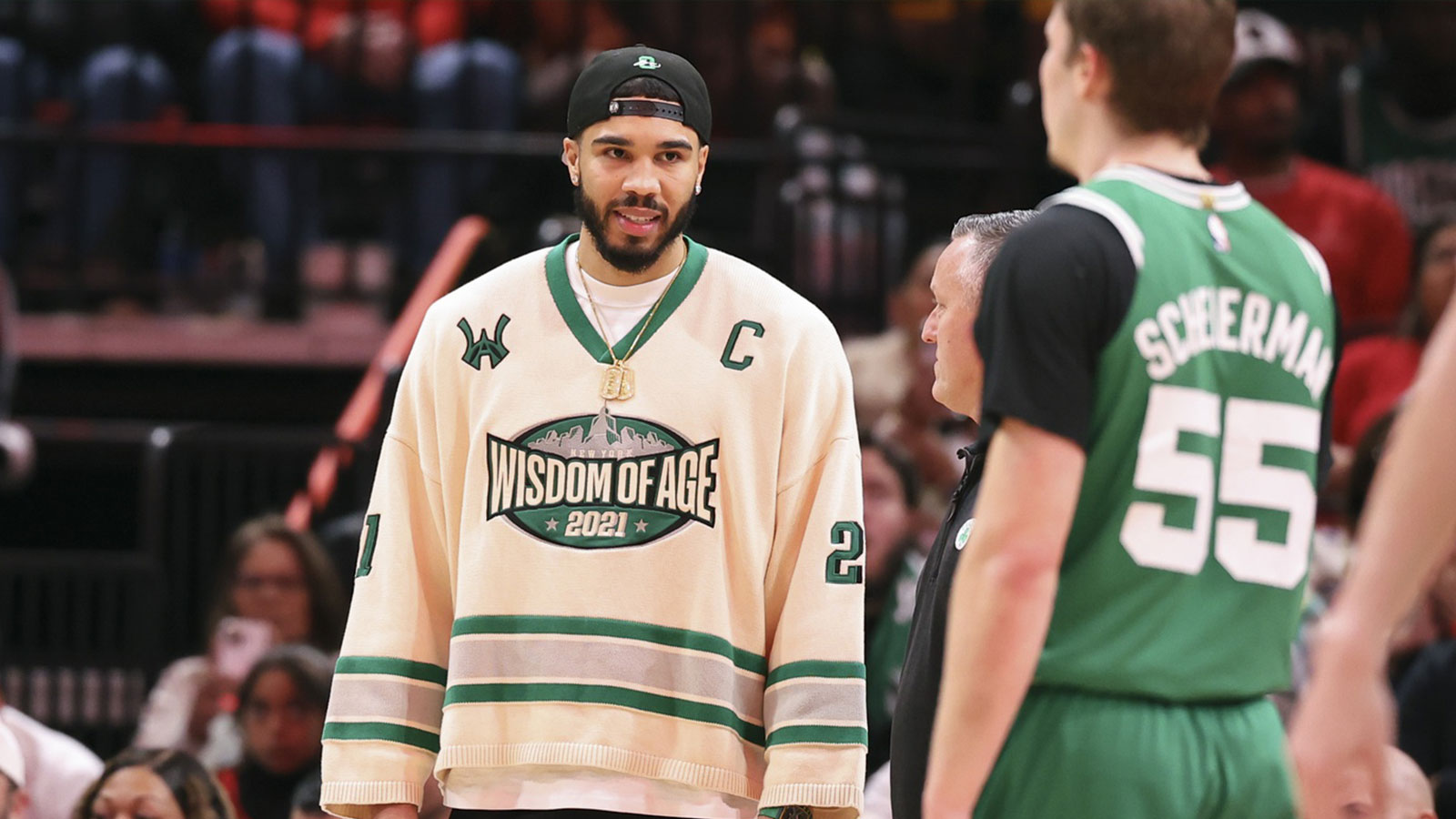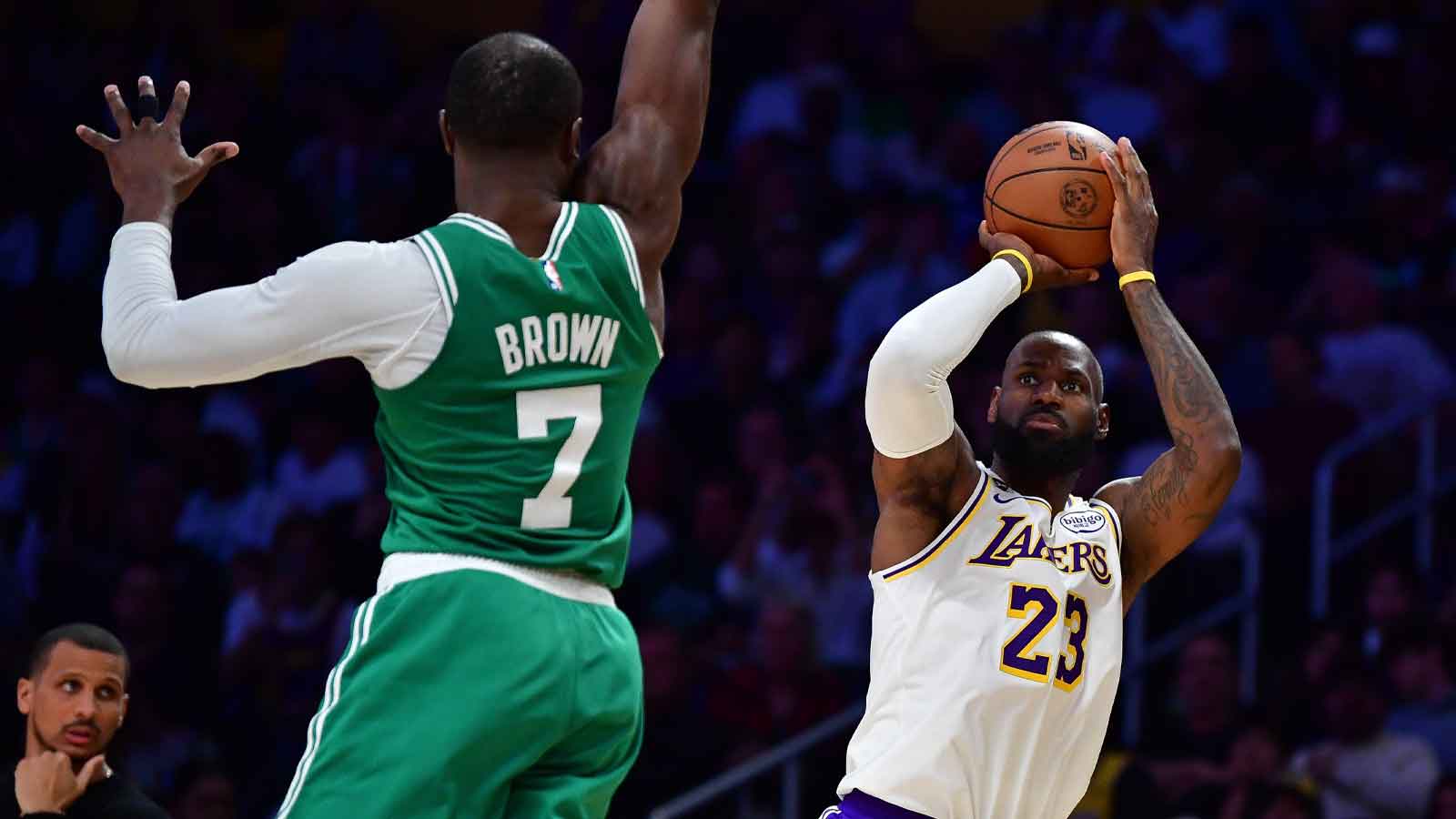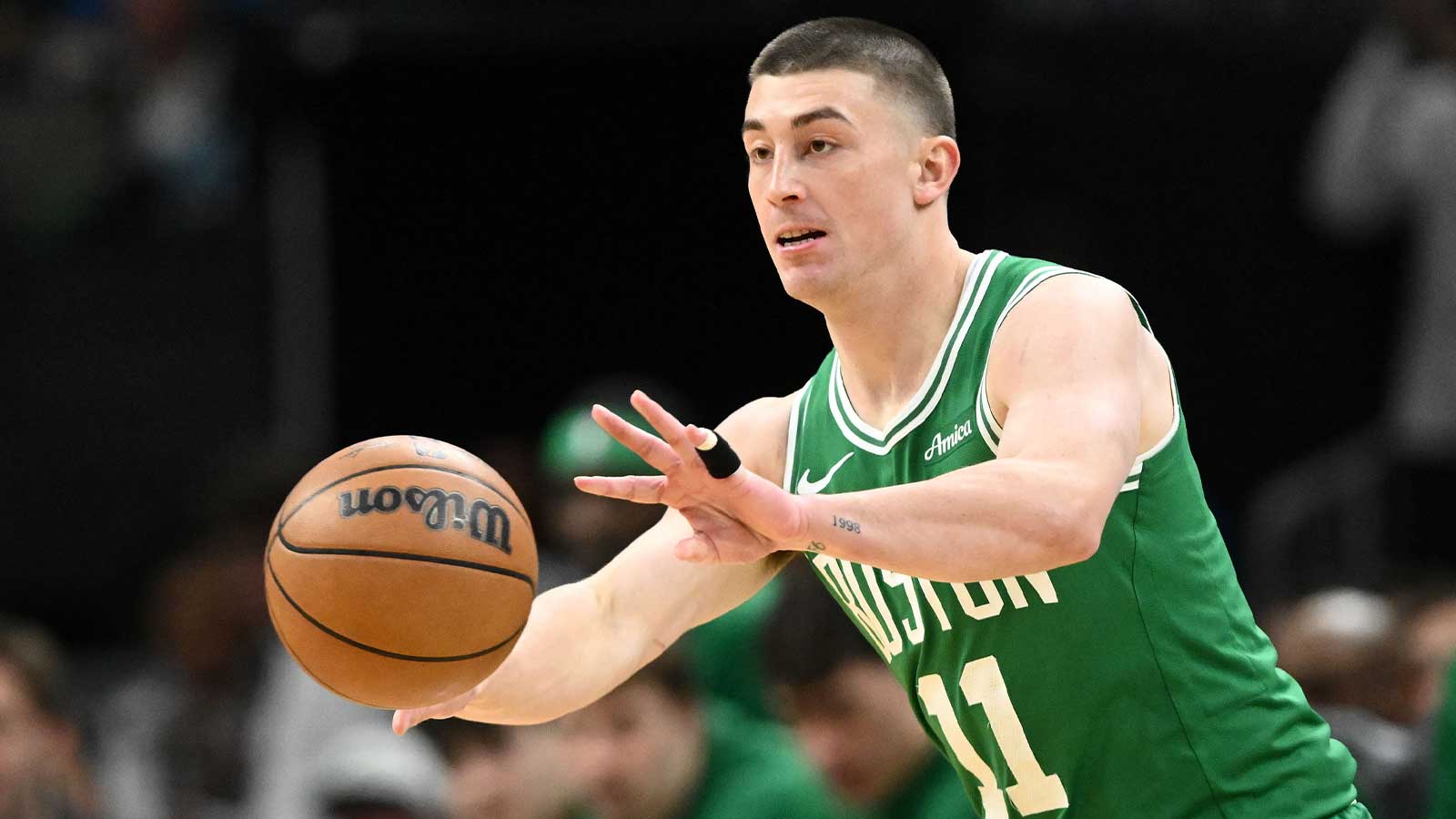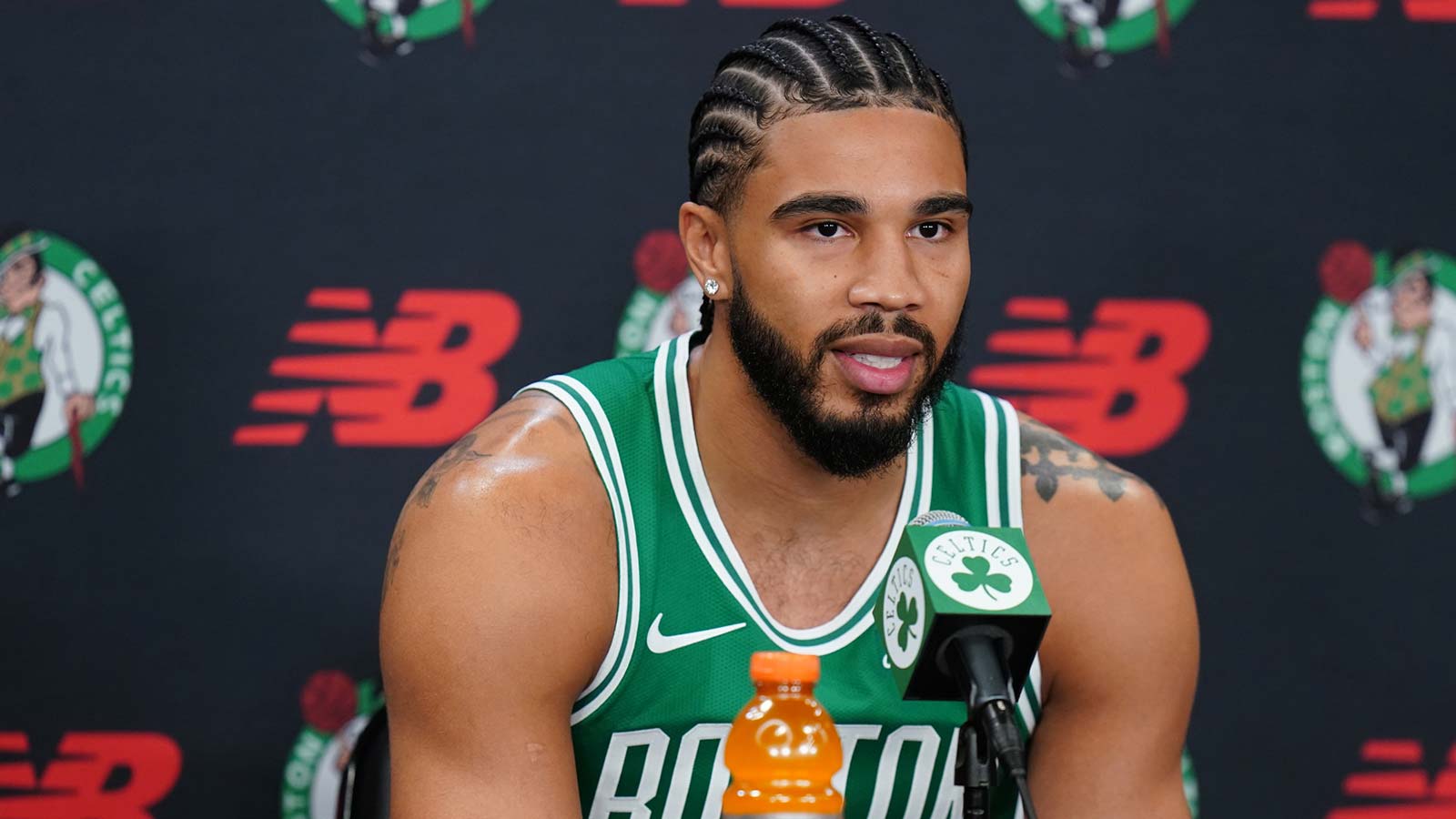The Boston Celtics’ underwhelming 2020-21 campaign has ended. After finishing with a .500 (36-36) record in the regular season, the Celtics won their play-in contest against the Washington Wizards—only to fall in five games to the second-seeded Brooklyn Nets in the Eastern Conference quarterfinals.
The Nets' Big 3 leads the Nets past the Boston Celtics in Game 5. Up next, the Milwaukee Bucks.
• James Harden:
34 points
10 rebounds
10 assists• Kyrie Irving
25 points
3 rebounds
3 assists• Kevin Durant
24 points
4 rebounds
3 assists pic.twitter.com/9Wa5VvC4AF— ClutchPoints (@ClutchPoints) June 2, 2021
After reaching the Conference Finals last year, the Celtics managed just one victory in the 2021 NBA playoffs. Despite championship aspirations, the Celtics lost more games than they won (including the play-in and postseason) in one of the most disappointing seasons in franchise history.
Let’s look at four takeaways from Boston’s frustrating 2020-21 season.
Celtics' Disappointing '20-'21 in four (4) parts

1. Kemba Walker's days as an NBA star are over
After signing a four-year, $120 million pact with Boston in the summer of 2019, Kemba Walker kicked off his Celtics tenure in style by starting the All-Star Game for the Eastern Conference during his first year with the team. Things have gone south for the point guard since then.
Walker struggled in the NBA’s Orlando Bubble last year as he battled knee ailments. One of the major appeals of Walker was his durability as a member of the Charlotte Hornets. In his final four seasons with the Hornets, Walker missed a mere six games combined. However, he sat out 16 games in the pandemic-shortened 2019-20 season with Boston.
Come 2020-21, Walker no longer played on consecutive nights. Furthermore, he was sidelined for the start of the season to recover his left knee, which received a stem cell injection in the offseason. By year’s end, Walker accumulated just 43 regular season games played out of a possible 72.
As if missing all that regular season time wasn’t bad enough, Walker failed to stay healthy in the playoffs. He missed the final two contests of the first-round series against the Nets with a left knee bone bruise. The four-time All-Star suffered the injury in Game 2, toughed out the ailment in Game 3, but was unable to suit up after that.
When Walker did manage to play this year, it was painfully obvious that he was not performing at a star level. Walker averaged 19.3 points on 42% shooting, his worst marks on both figures since 2014-15. He was particularly ineffective early on this season.
Kemba Walker
Celtics since 1979/80, thru the team's first 30 games, players with
FGA ≥ 225
FG% ≤ .375
3P% ≤ .350
2P% ≤ .400Kemba Walker – 2020/21
Marcus Smart – 2017/18not exactly a list you want to be on
— Boston Sports Info (@bostonsportsinf) February 22, 2021
Walker didn’t appear to have much impact on winning—as the Celtics were mediocre with him (22-21) active and without (14-15) him in the lineup.
To make matters worse, Walker bottomed out in the postseason. He averaged just 12.7 points and shot a dreadful 31.7% from the field, including an atrocious 17.6% from downtown across three contests. The point guard mustered just 4 assists per night against 2.7 turnovers. For the series, Walker had just one steal and did not record a block.
Walker makes $30 million a year, a disturbingly high amount given his production. It will be tough to trade him, especially with his contract running through 2023. Now an injury-prone player, the 31-year-old is unlikely to ever be a star-caliber guard again. In fact, it’s looking more and more like Walker cannot even be the third-best player on a championship-contending team.
2. Marcus Smart is expendable
The Celtics ranked a middling 13th in team defensive rating. Their supposed best defensive player, Marcus Smart, failed to live up to his reputation this season. He finished 130th in Defensive Win Shares and 82nd in Defensive Box Plus/Minus, according to Basketball Reference.
Smart had a defensive rating of 113.2 this season, far from an elite mark. The combo guard earned NBA All-Defensive First Team selections in each of the past two years, but won’t find his name anywhere near that list in 2021.
The longest tenured Celtic on the roster, Smart and the Celtics could both benefit from a fresh start. With his defense slipping—while his poor decision making and shot selection remains steadfast—the 27-year-old no longer feels like the heart and soul of the club.
Sports Illustrated’s Chris Mannix reports the Celtics have tried to trade Smart “for years.” Next season is the final year of Smart’s contract, increasing the chances he might finally be dealt.
3. Jaylen Brown emerged into bonafide star
For all the negatives surrounding the Celtics, Jaylen Brown provided a ray of hope via his leap into stardom. Brown earned his first All-Star selection, and all things considered, the 24-year-old probably should have started the contest for the Eastern Conference.
Brown looked like a star throughout the Orlando Bubble, but he managed to take his game to another level this season. He produced per-game marks of 24.7 points, 6 rebounds, 3.4 assists and 1.2 steals—all career bests. He also logged career highs in field goal percentage (48.4), 3-point percentage (39.7) and free throw percentage (76.4).
A true two-way player, Brown is an elite wing defender. For his offensive and defensive prowess, Brown finished sixth for the NBA’s Most Improved Player award for 2020-21.
In winning the 2020-21 Kia NBA Most Improved Player Award, @J30_RANDLE received 98 of 100 first-place votes from a global panel of sportswriters and broadcasters.
Complete voting results ⬇️ pic.twitter.com/ekh07sex7K
— NBA Communications (@NBAPR) May 25, 2021
Brown’s season came to a screeching halt after he suffered a torn ligament in his left wrist. The injury occurred in the final week of the season, denying him a chance to play in the postseason. After undergoing successful surgery, Brown is expected to resume basketball activities in three months.
Brown is unquestionably Boston’s second-best player behind All-Star Jayson Tatum. The Celtics will build around the young duo for the foreseeable future.
4. Brad Stevens should be on the hot seat
Celtics head coach Brad Stevens entered the year with three Conference Finals appearances under his belt. Hired prior to the 2013-14 season with the franchise rebuilding, Stevens was particularly masterful in 2016-17 and 2017-18.
Stevens guided the 2016-17 Celtics to the Eastern Conference’s top record. They reached the 2017 East Finals, despite an unimposing starting unit that featured Isaiah Thomas, Avery Bradley, Jae Crowder, Amir Johnson and Al Horford. The following year, the Celtics again reached the East Finals, despite season-ending injuries to their two purported best players, Kyrie Irving and Gordon Hayward.
Those two excellent coaching seasons did not go unnoticed. In fact, Stevens was voted the best coach in the league by NBA general managers in their annual survey prior to the 2018-19 campaign.
Flash forward to now, and there is serious doubt as to whether Stevens should remain Boston's head coach. The Celtics have plenty of talent, yet they failed to post a winning record for the first time since Stevens’ second year with the club. It certainly looked like multiple guys on the roster tuned out Stevens as the season progressed. Stevens frequently challenged his players to respond following a discouraging loss, and in most cases, those bounce-back team performances never materialized.
Despite overseeing a disastrous season, Stevens’ job is reportedly safe.
"Brad Stevens … is going to be back. The idea that his job might be in jeopardy is just not accurate."
—@wojespn pic.twitter.com/OpSQ6pOHd7
— Get Up (@GetUpESPN) May 18, 2021
Perhaps Celtics President of Basketball Operations Danny Ainge is correct in not overreacting to one underachieving season on Stevens’ part. After all, Stevens is clearly highly regarded by opposing executives and it might be foolish to fire a guy who would get scooped up immediately on the open market. Nevertheless, the Celtics have enough talent to contend with the East’s elite squads and this year’s results were simply unacceptable.
Stevens probably deserves another season at the helm of the Celtics. However, his job status beyond next year should not be secure until the Celtics return to contender status.



